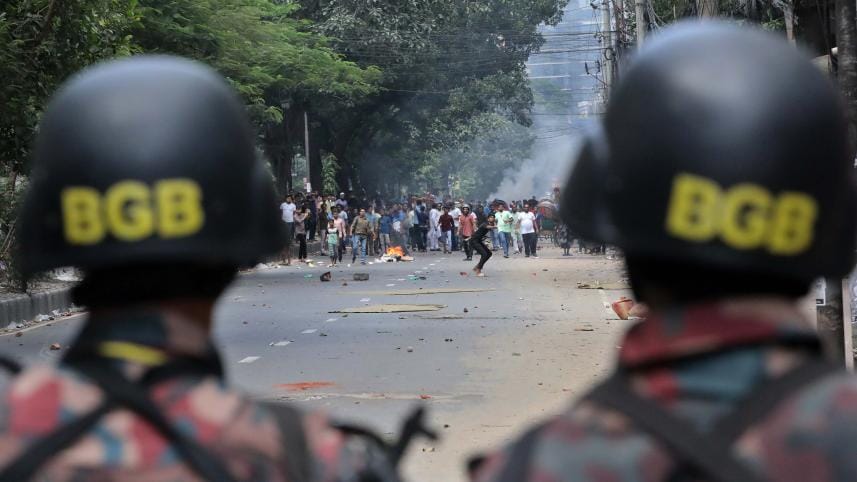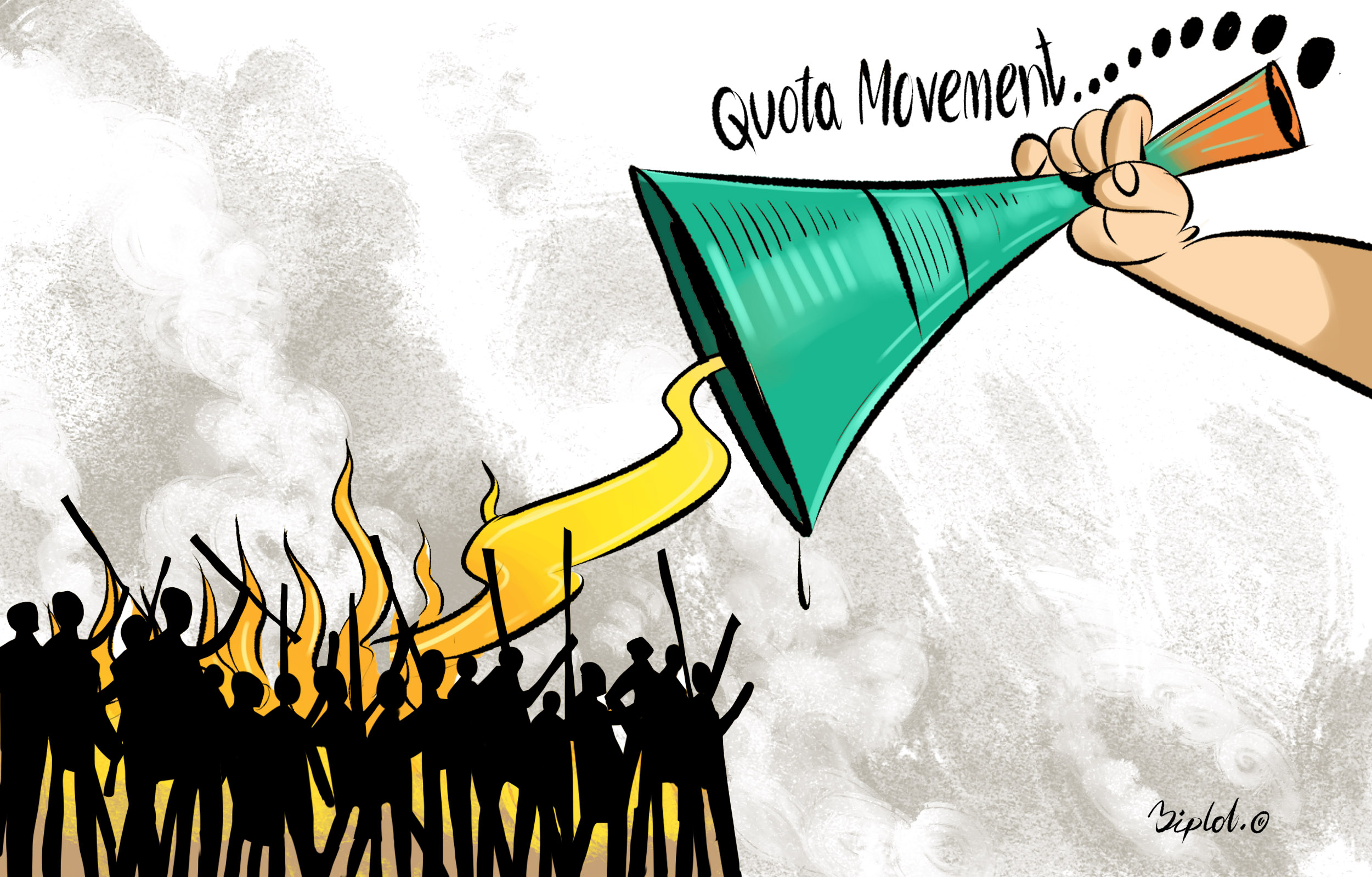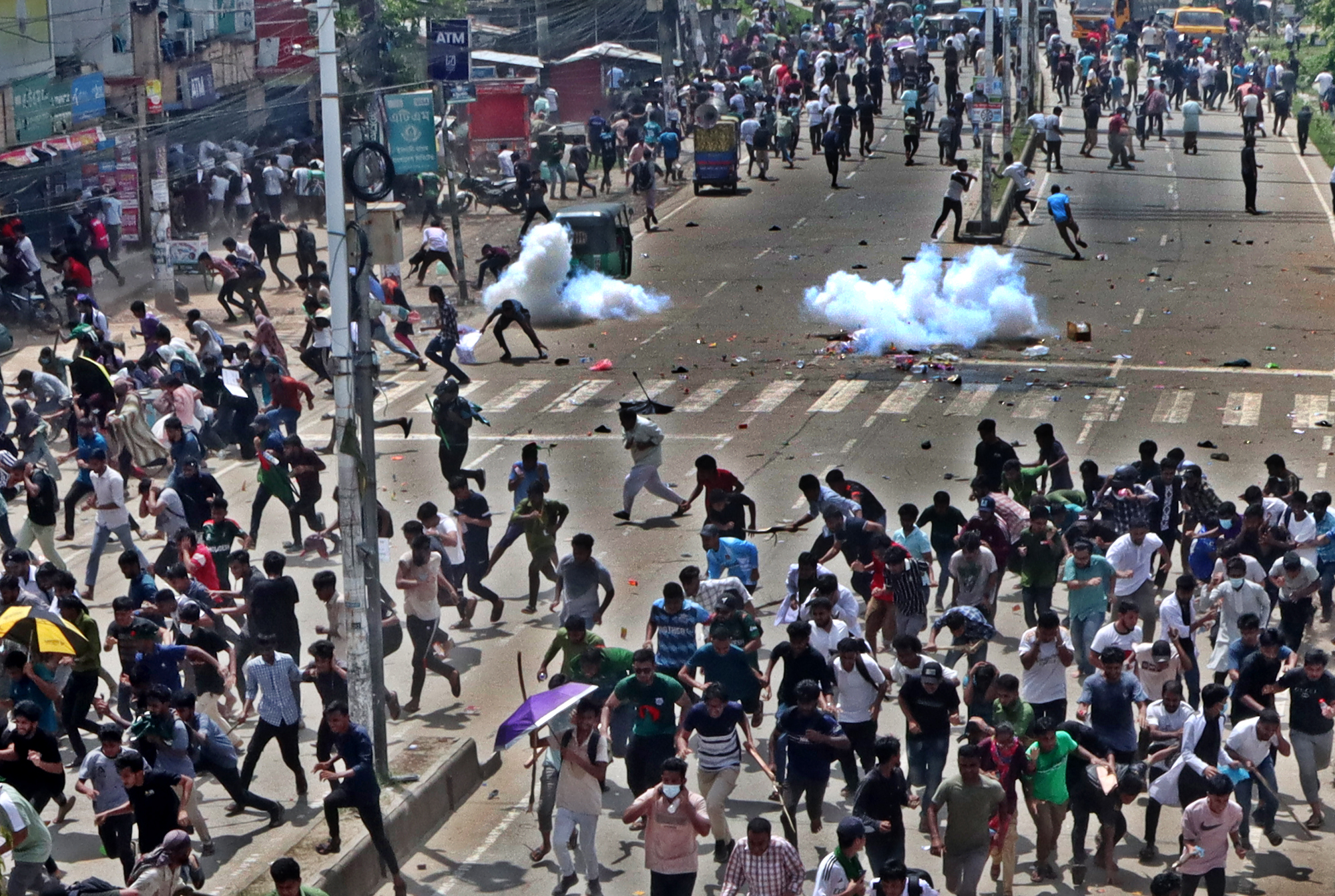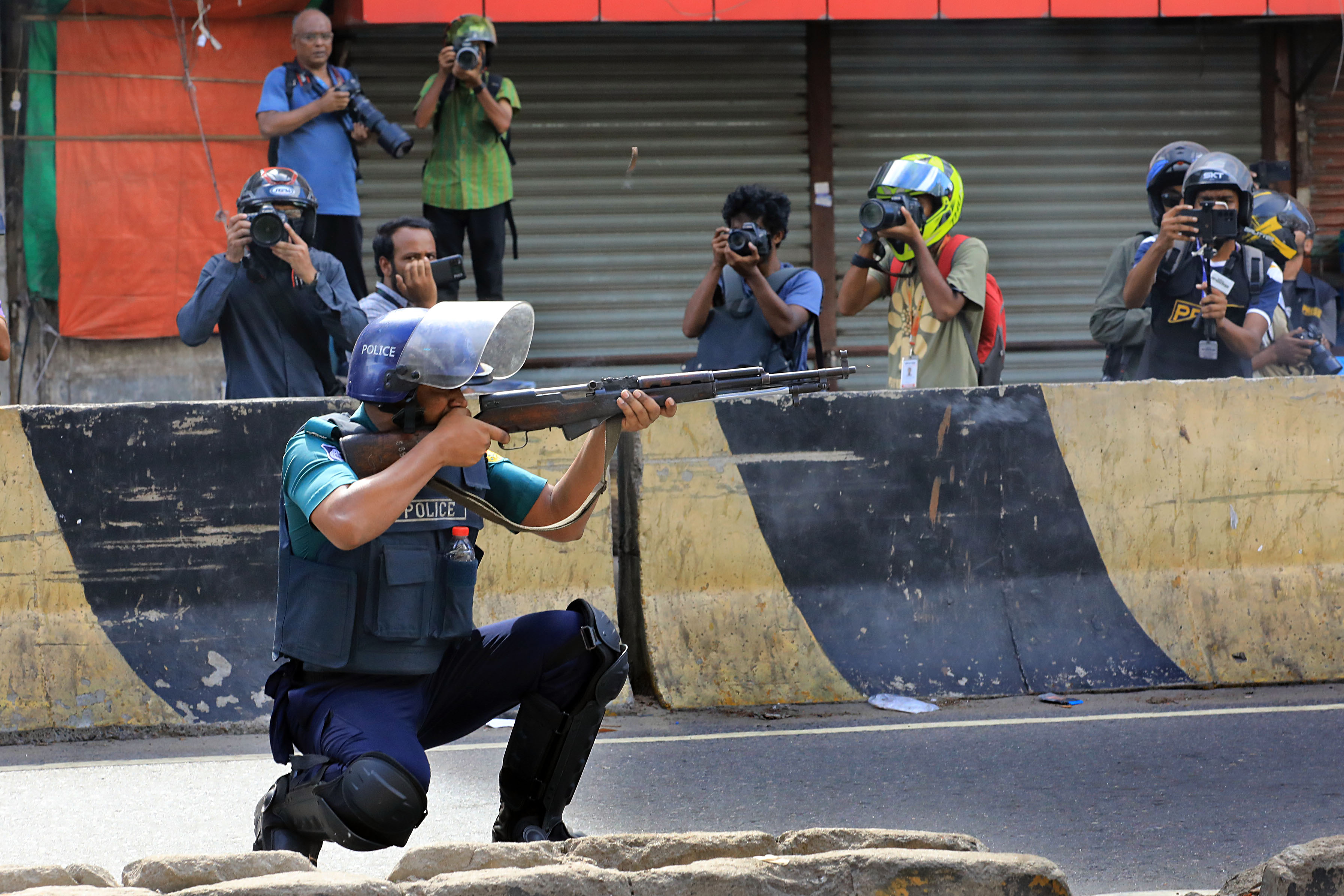The shifting political field and the price of permanent war

It has been a week in almost complete shutdown. Once again, a reasonable and peaceful student movement has ended in grotesque violence. This time, however, it seems that everyone bit off more than they could chew. The landmark verdict is now out: a 5 percent freedom fighters' quota, 1 percent for indigenous communities, and 1 percent for people with disabilities and those identifying as third gender. It has come at a hefty price; media reports suggest close to 200 deaths nation-wide, many of them students. The campus attacks, raids, beatings, and shootings definitively turned the tide against the government, and a dangerous section was clearly ready to seize the moment. The ensuing chaos has left thousands injured, massive destruction of public property and infrastructure, and over 4,000 arrests.
Many (including the BCL) expressed their solidarity with the movement just before the verdict. Many veteran political leaders and cultural activists who had become ensnared by the misconceived and unfortunate "Razakar" rhetoric and deemed it an anti-state, anti-Liberation War movement just days ago have now declared the verdict a victory for all. How fast the tables have turned! Such a dramatic reversal should make us wary for two reasons: one, our senior leadership's repeated inability to read the political field; and two, the foreclosure of any serious conversation about the issue of quota reform itself.
We are a nation with selective amnesia. The students taking to the streets today have known nothing but one-party rule. They have not seen the fight against autocracy or the AL-BNP cycle, and 1971 is in the distant past. But they did grow up with Shahbagh, no-VAT, quota-reform, and the fight for road safety. A new form of student politics has taken shape over this cascade of movements that explicitly rejects the party/student politics of old, which for them represent only campus violence and corruption; this is a generational shift that our leaders are still failing to grasp. Each of these movements has built on the last, producing leaders and carrying visceral memories. They remember being crushed and met with sheer indignity every time, left alone to fend for themselves in the face of repression, being tagged as pawns of enemy forces, and the repeated hijacking of their causes. Above all, they have learned to trust no one.
What did our students demand? The chance to have a dignified and secure life. What did they receive? The same delaying tactics, the inevitable othering and the wrath of the foot-soldiers. Only those with permanent blinders could see nothing but "BNP-Jamaat" when looking at the thousands of committed students; they could not see that it is the ruling party's intransigence and trigger-happiness that always provides an opening for their enemies. This regime has been in power for 15 consecutive years. No other party can claim as much experience in parliament and on the streets. Is it not enough time to start relying on consent over coercion? Is it not easier to defeat your enemies in parliament than to be permanently on the warpath against some shapeshifting enemy?
The people, state and civil society form an integral triad, and each node must understand their position within the shifting political field. Gone are the days of ideologically-led political movements. For over two decades, we have been witnessing a global wave of populist mobilisations, from the Arab Spring to our own Shahbagh uprising. These movements reflect a loosely-organised, issue-based transversal politics, often embodying majoritarian sentiments. Articulated as contests between "the people" and some "power elite," such sentiments can sway from left to right at any time and are just as amenable for absorption by the forces of "un-civil" society. State and civil-society institutions must be prepared to confront such sentiments with care or risk their weaponisation into the kind of all-out war we witnessed on Friday. Middle-class desperation has now been displaced by a "lumpen" class angst against a state/regime that many feel permanently excluded from, and who care nothing for mega structures. What allows such a rage against the machine and how it is being moulded are structural questions we need to address.
In all this madness, we have forgotten to take the significance of the quota-reform debate seriously. It is heartbreaking to see our students ready to die for the chance to be part of the same state apparatus that sees them as disposable, to join the same civil service whose corruption and incompetence we endlessly vilify. Quota or not, thousands of our graduates will not get government jobs; what will they do? Will our public universities be factories for producing clerks, still committed to the colonial ideal of the wage-earning middle class running the state? When will we dream of becoming scientists, artists, even industrialists?
It is also unfortunate to see a whole generation believe in the neoliberal magic of "meritocracy." From the beginning, misogynistic, majoritarian attacks on quotas for women and minorities had slipped in alongside the demand for reform. The fetishisation of "merit" allows those who lose out among the middle classes and dominant/majority groups to blame their misfortunes on the apparent preferential treatment of others. This is a convenient fantasy. "Merit" depends at least as much on environment and opportunity as hard work and talent, and the former are not distributed equally. Only 2 percent quotas for the structurally disadvantaged is not a fitting end for a "movement against discrimination." Based on what data did we dismiss the quota for women? Since when do all districts offer the same opportunities? Should such decisions be so amenable to popular pressure?
That is a fight for another day and by other means. This movement-repression cycle cannot be our only recourse, letting the space for democratic dialogue shrink even further. Toppling a government cannot be our ultimate yardstick for success. The state must learn to negotiate without unleashing its forces or cowering to majoritarian sentiment. All the millions invested in intelligence and surveillance technology could not prevent these deaths and the destruction of public property. Perhaps now this regime will understand that they cannot claim a monopoly over the nation-state, that their history and demonstrations of development do not automatically entitle them to reign.
Most of us are neither in positions of power nor capable of swindling banks to build a second home elsewhere. Some of us are sticking around, trying to build institutions and communities instead of giving in to despair. Those who claim to govern must realise that their power is on lease, no matter how long the terms. There are tectonic shifts happening beneath us. Many of our citizens are desperate and at the tipping point. They have no regard for their personal safety and are ready to unleash with the slightest instigation. Their collective agency is up for grabs for a favourable ideology or for the highest bidder. All of us need to wisen up while we still can. Many of us still believe in the People's Republic of Bangladesh. We have only one nation and only one lifetime to fix it.
Seuty Sabur and Shehzad M Arifeen teach anthropology at the Department of Economics and Social Sciences, School of Humanities and Social Sciences, BRAC University.
Views expressed in this article are the author's own.
Follow The Daily Star Opinion on Facebook for the latest opinions, commentaries and analyses by experts and professionals. To contribute your article or letter to The Daily Star Opinion, see our guidelines for submission.





 For all latest news, follow The Daily Star's Google News channel.
For all latest news, follow The Daily Star's Google News channel. 


Comments